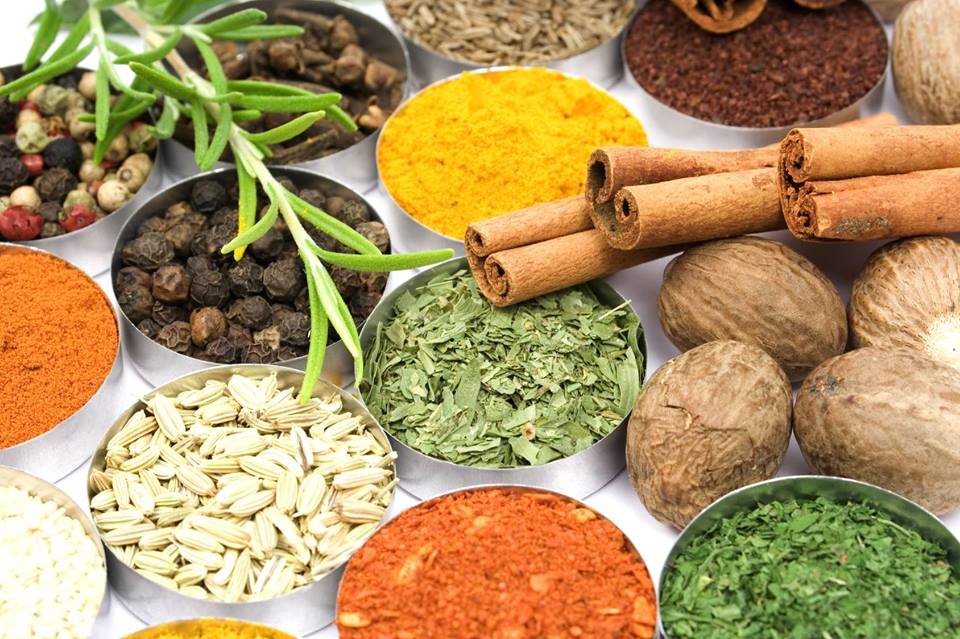
Best Herbs And Spices For Your Brain
Science and research are a godsend, but it can get so darn confusing and frustrating sometimes. Take Alzheimer’s disease; it’s forever in the news. Brain games help, researchers say. Sleep and diet are important, scientists insist. Genes and exercise count, everyone agrees.
It’s arduous to stay up with everything; it all changes daily and generally, hourly. And the more I write about health and interview doctors and scientists and researchers, the more I realize that studies, even though they seem to say a lot, are oftentimes flawed, inconsistent, difficult to interpret, and forever subject to change. But, alas, sometimes they’re all we’ve got. So my theory is to approach them with caution and skepticism. What’s a no-no these days may be cordially supported tomorrow. The bad news is the new good news. Yesterday’s skepticism is today’s miracle cure.
And then, just as I was feeling good and hopeful – writing about things we can do to keep our brains sharp – last night’s gloom and doom news announced the NIH’s latest stance on presenile dementia disease: the scientific proof isn’t sturdy enough to create any recommendations to assist forestall, or even slow it.
So…WHY do we need to know this? Does this mean we should always surrender our crossword puzzle puzzles, our exercises, our healthy lifestyles? Do we throw away the Ginko Biloba and fish oil because one of these panelists called them?
So, let’s talk spices. There’s new research (I know, there’s that word again, but, hey, spices really seem kinda innocuous, you know?) that they are good for your brain. They may not be the anti-Alzheimer’s cure-all, however since we have a tendency to most likely have already got tons of those in our room, why not place them to smart use?
Turmeric: There might be a reason that the rate of Alzheimer’s in India is one-fourth of ours in the U.S. Curcumin, the active ingredient in turmeric (that’s what gives curry its yellow color), breaks up brain plaques of amyloid-beta (the abnormal protein buildup that is a hallmark of Alzheimer’s). Curcumin has also been found to inhibit the growth of cancer cells and reduce inflammation. Just a teaspoon of curry powder (which is a blend of turmeric and other spices) is equal to ½ cup of red grapes in antioxidants. Oh, how this makes me wish I liked Indian food….
Saffron: What does this have in common with Prozac? In a 2007 study, it was found to work as well as the anti-depressant in treating mild-to-. When my son visited the European nations once he was in high school, my souvenir was 2 good-size bags of the stuff. (when I think about that, it’s cute…after all, all you need to use is ½ teaspoon added to 2 cups of rice. If you need any saffron, call me.) Saffron is a concentrated source of antioxidants, on par with strawberries, cherries, and raspberries.
Garlic: It may facilitate the fight of brain cancer; garlic compounds, in a study, eliminated cancer cells. Of course, further studies need to be done to further test the effectiveness of this claim. But hey, garlic has so many other benefits, like possibly helping keep cholesterol low, so who knows what else is hidden behind those cloves?
Cinnamon: Cinnamon has one in every of the very best inhibitor levels of any spice – and even over several foods. There are as many antioxidants in 1 teaspoon of cinnamon as a full cup of pomegranate juice or ½ cup of blueberries. And mastication cinnamon gum might keep your brain sharp: a recent study found that it speeds the speed at that your brain processes visual cues. (It may be because cinnamon also helps to regulate blood sugar levels – which is good news for diabetics – and by doing this, may help you stay focused).
Thyme: A teaspoon of thyme has about the same amount of antioxidants as a carrot of ½ a cup of chopped tomatoes. And the flavonoids in this spice give it antioxidant properties as well. There square measure some studies that recommend these antioxidants might have age-related edges like serving to take care of psychological feature operate and promote heart health.
Coffee: Okay, I’m cheating; it’s not a spice. But I wanted to sneak it in here because of this: Scientists have already documented coffee’s ability to enhance learning and memory and speed the processing of information. Now new research published in the Journal of Alzheimer’s Disease says that coffee can also ward off some effects of aging on the brain. Previous research shows that caffeine can lessen the damage of Alzheimer’s disease caused by the toxic peptide that forms plaques in the brains of Alzheimer’s patients. New findings show that women (not the same for men, for whatever reason) who drank 3 or more cups of coffee a day (or 6 cups of tea) were protected against the deterioration and loss of brain tissue. Caffeine also stimulates blood flow.



